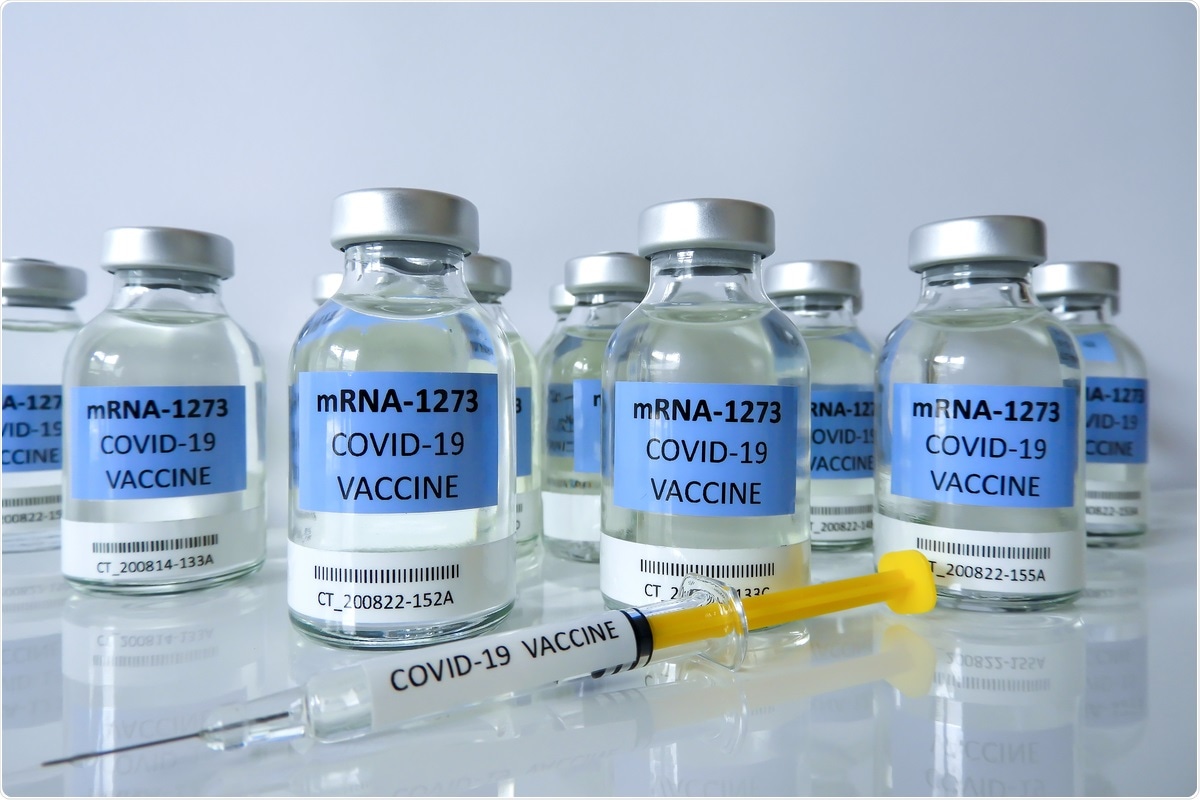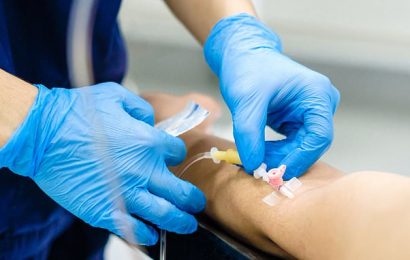A recent study published in the New England Journal of Medicine supports the efficacy of the mRNA-1273 vaccine in preventing coronavirus disease 2019 (COVID-19) illness and disease severity. At interim analysis in phase 3, randomized, observer-blind, and placebo-controlled clinical trial of the Moderna’s mRNA-1273 vaccine, the observations show that the vaccine remained safe and efficacious for more than five months of follow-up after trial participants received the second dose of the vaccine.
 Study: Efficacy of the mRNA-1273 SARS-CoV-2 Vaccine at Completion of Blinded Phase. Image Credit: Elzbieta Krzysztof/ Shutterstock
Study: Efficacy of the mRNA-1273 SARS-CoV-2 Vaccine at Completion of Blinded Phase. Image Credit: Elzbieta Krzysztof/ Shutterstock
Background
The mRNA-1273 vaccine is one of the three vaccines against severe acute respiratory syndrome coronavirus 2 (SARS-CoV-2) to receive the Emergency Use Authorization (EUA) from the Food and Drug Administration (FDA).
Early findings published by the research team found at interim analysis in phase 3, observer-blinded, placebo-controlled clinical trial, the mRNA-1273 vaccine showed 94.1% efficacy against COVID-19, with an acceptable safety and side-effect profile after a median follow-up of 64 days.
The current evaluation reports the final analyses of the efficacy and safety of the vaccine. This peer-reviewed study is part of the Coronavirus Efficacy (COVE) trial (ClinicalTrials.gov number, NCT04470427), funded by the Biomedical Advanced Research and Development Authority and the National Institute of Allergy and Infectious Diseases.
The study
This trial, part A of COVE, was a stratified, observer-blinded, randomized, placebo-controlled evaluation of the efficacy, safety, and immunogenicity of the mRNA-1273 SARS-CoV-2 vaccine compared with a placebo.
The trial enrolled 30,415 participants at 99 centers across the United States who were over 18 years old and in medically stable condition with no known history of SARS-CoV-2 infection. Due to their location or circumstances, the participants were at risk of SARS-CoV-2 infection and/or high risk of severe COVID-19.
Half of them received two intramuscular injections of the mRNA-1273 (100 μg) vaccine, and the other half received the placebo. The participants had the first injection between July 27 and October 23, 2020, followed by their second dose after 28 days.
In this study, the team defined the COVID-19 cases by at least two systemic symptoms (temperature ≥38°C, chills, myalgia, headache, sore throat, or new olfactory or taste disorders), or at least one respiratory sign or symptom (cough, shortness of breath, or clinical or radiologic evidence of pneumonia). It was confirmed by a positive SARS-CoV-2 reverse-transcriptase polymerase-chain-reaction (RT-PCR) assay of nasopharyngeal swab, nasal, or saliva samples. The team collected data on local and systemic adverse events after each injection.
mRNA-1273 SARS-CoV-2 vaccine efficacy and safety
The research team found the vaccine efficacy for the prevention of COVID-19 to be 93.2%, and the efficacy against severe disease to be 98.2%. Only two cases of severe COVID-19 among the 15,180 participants in the mRNA-1273 group occurred compared to 106 among the 15,206 participants in the placebo group. The vaccine also provided substantial protection against asymptomatic infection.
However, the team noted that the sensitivity of detection of asymptomatic infection in this trial was limited because of:
- fixed seroconversion-assessment time-points
- the kinetics of seroconversion of anti-nucleocapsid antibodies (which may take weeks after initial infection and wane rapidly)
- possibly diminished detection by RT-PCR, as the infection duration may be reduced in vaccine recipients
The infrequent collection of samples from asymptomatic participants in the trial may add to the challenges.
Because of the trial design stage in early 2020, when the efficacy and safety of this vaccine were unknown, the trial did not include certain key populations such as pregnant women, children, and immunocompromised persons. However, currently, studies including these populations are ongoing, with the emerging data positively reassuring.
The study identified no safety concerns in this trial. Post-injection, the severe adverse events were similar between the vaccine and placebo group (regardless of age). Many reported fatigue, muscle aches, joint pain and/or headaches seven days following vaccination.
The real-world data supports the vaccine efficacy: highly effective in preventing severe COVID-19, associated hospitalizations, and deaths, as well as mild or asymptomatic infection, regardless of race and age.
Conclusion
In conclusion, this study reaffirms the safety and efficacy of the mRNA-1273 SARS-CoV-2 vaccine in preventing symptomatic COVID-19 even beyond five months – preventing the SARS-CoV-2 infection regardless of symptom and severity in adults, including the elderly and those with coexisting conditions, across various ethnic and racial groups.
- El Sahly, H.M, et al. (2021). Efficacy of the mRNA-1273 SARS-CoV-2 Vaccine at Completion of Blinded Phase. New England Journal of Medicine. doi: 10.1056/NEJMoa2113017.
Posted in: Medical Science News | Medical Research News | Disease/Infection News
Tags: Allergy, Antibodies, Assay, Children, Clinical Trial, Coronavirus, Coronavirus Disease COVID-19, Cough, Efficacy, Fatigue, Food, Headache, Infectious Diseases, Joint Pain, Medicine, Muscle, Pain, Placebo, Pneumonia, Polymerase, Research, Respiratory, SARS, SARS-CoV-2, Severe Acute Respiratory, Severe Acute Respiratory Syndrome, Sore Throat, Syndrome, Throat, Vaccine

Written by
Dr. Ramya Dwivedi
Ramya has a Ph.D. in Biotechnology from the National Chemical Laboratories (CSIR-NCL), in Pune. Her work consisted of functionalizing nanoparticles with different molecules of biological interest, studying the reaction system and establishing useful applications.
Source: Read Full Article


